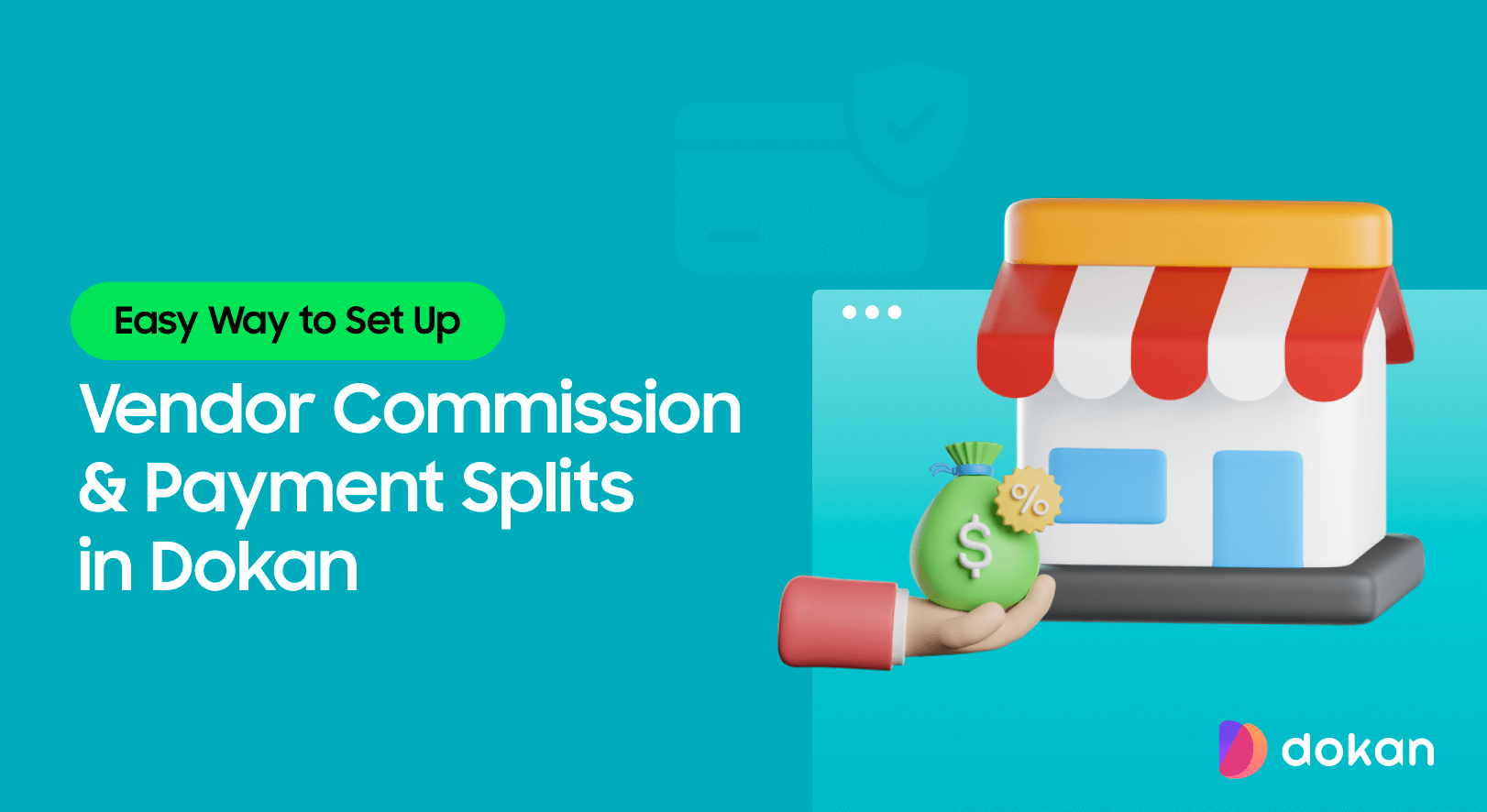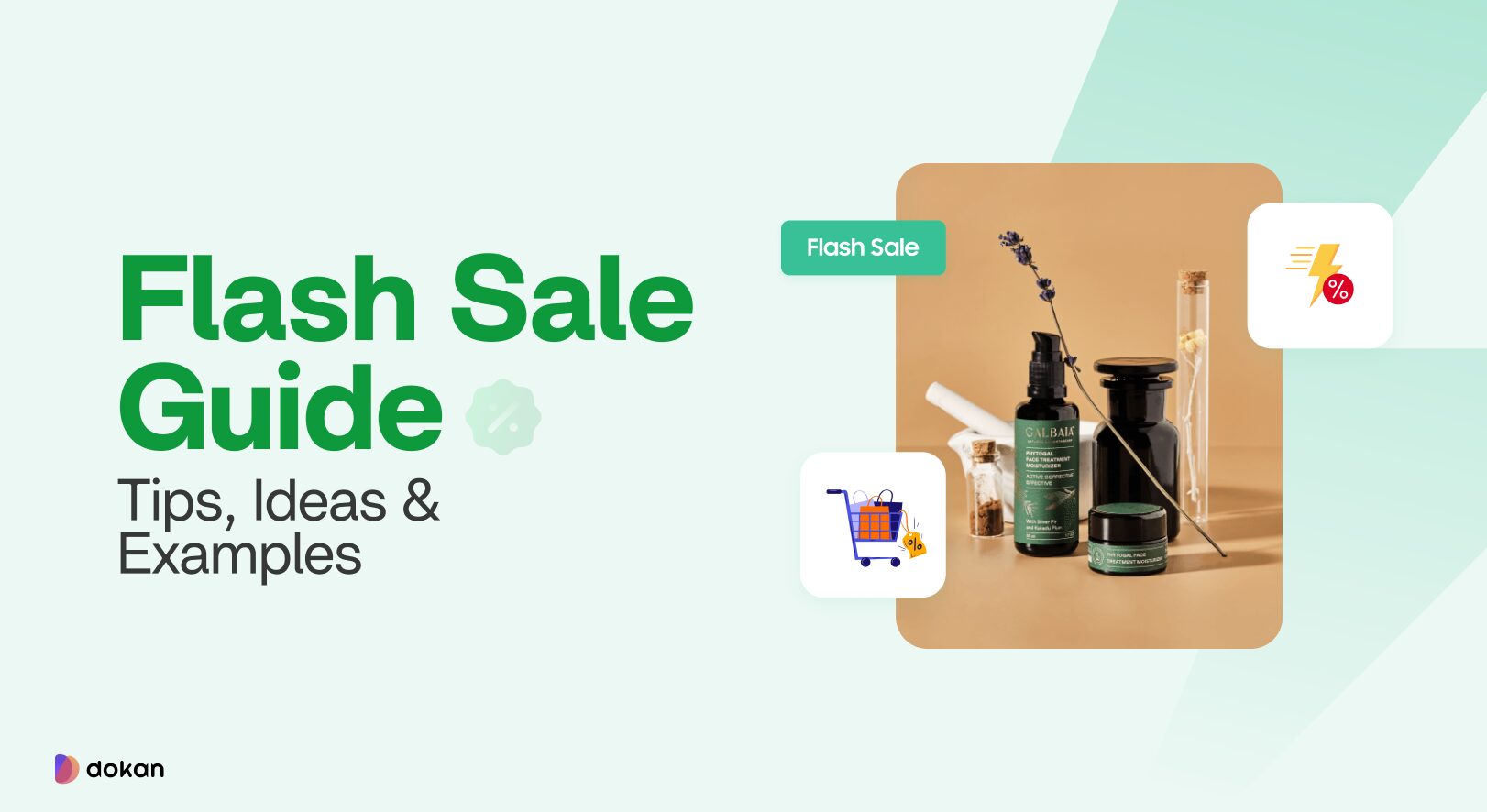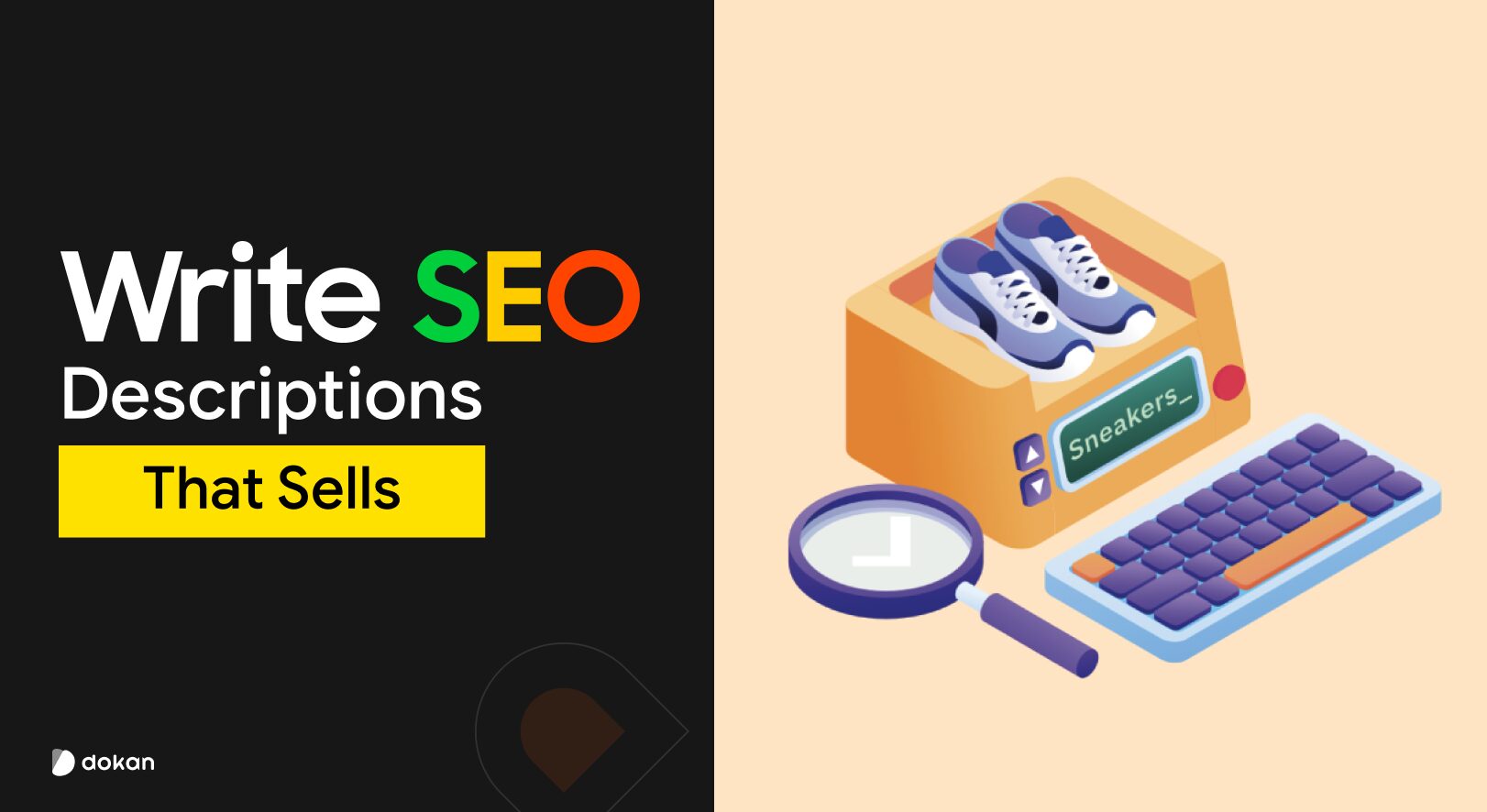It’s been over 40 years since online shopping was first introduced by Michael Aldrich in 1979.
The trends and capabilities of the eCommerce marketplaces have evolved rapidly over these years. As a result, the market is saturated with countless competitors.
In 2023, $6.45 trillion was spent globally on the top 100 online marketplaces.
The only way to become successful as a marketplace owner is to invest in a marketplace idea that has great potential. So, it’s obvious that the future of your marketplace depends on the selection of the right idea. However, the question is how would you know if your idea has the potential to work.
To help you in this regard, we’ve enlisted the best marketplace ideas with high business potential in this article. There are successful ventures that already gained their business goals by adopting these ideas. But before that, let us show you some interesting facts about online marketplaces.
What Is an Online Marketplace
An online marketplace brings buyers and sellers together on the same platform. The orders are placed online and products are delivered to the doorsteps of the customers. Usually, marketplace owners don’t hold inventory. They forward the orders to third-party sellers and the sellers arrange to ship the items to target destinations.
An online marketplace differs from a traditional eCommerce in terms of the number of vendors. Regular eCommerce has a single vendor whereas a marketplace hosts multiple vendors on its selling platform.
And, global online marketplaces have experienced more growth than traditional eCommerce websites over the past few years. Read the following section to know more.

Online Marketplace: Global Market Share and Growth
We need to realize the vastness of the global eCommerce industry first to realize the global market share of online marketplaces.
According to Statista, global retail sales reached almost 4.9 trillion US dollars in 2021. This amount is expected to increase by 50% within the following four years.
Sales from online marketplaces accounted for 67% of total global eCommerce sales. And, the top 100 marketplaces generated more than 90% of global marketplace sales. These stats show how online marketplaces are shaping the future eCommerce world.
Digital Commerce 360 analyzed the top global marketplaces in 2021 and identified that these marketplaces are growing faster than before in terms of gross merchandise value (GMV). They grew 18% faster than the growth of the previous year.

Chinese marketplace Taobao and Tmall are leading the list of top global online marketplaces with US giant Amazon at number three. Both the first two marketplaces are owned by the Alibaba group.
While it’s tough to enter the market and beat these top players, you can still start a marketplace and succeed. All you have to do is work on the right idea. Keep reading the following section to get the best marketplace ideas to get started in 2023.
9 Best Marketplace Ideas to Get Started As an Entrepreneur

We’ve listed the best marketplace ideas here based on our intensive research. You can select a suitable business model that fits your needs. And take inspiration from available marketplaces that have gained notable success.
Here is the list of the best marketplace for startups that we’re going to explain in the following sections-
- Rental Marketplace Platforms
- Food Ordering & Delivery Marketplace Platforms
- Grocery Delivery Marketplace Platforms
- Fitness Marketplace Platforms
- Travel Activity & Booking Marketplace Platforms
- Service Marketplace Platforms
- Telehealth Marketplace Platforms
- eLearning Marketplace Platforms
- B2B Online Marketplace
Now let’s see the details of these marketplace startup ideas-
1. Rental Marketplace Platforms
Renting different kinds of things is a very old tradition in every country. These facilities have become more accessible for end-users with the advent of modern eCommerce marketplaces. Thus sellers can use their assets to make money. And buyers can use a product without owning it.
According to a study, almost 70% of Generation millennials prefer renting an item over buying that. It’s a win-win situation for both parties- buyers and sellers. You can start a profitable rental marketplace in many fields, such as:
- Vehicle
- Accommodation
- Storage
- Equipment
- Furniture, and more.
Let’s have a basic idea of the revenue model of online rental marketplaces.
Revenue Model
Rental marketplaces mainly run on commission-based revenue models. The marketplace owner lets property or product owners list their goods on the marketplace website. Interested buyers rent these items from there. Usually, marketplace owners get commissions from both parties and make a substantial profit in the long run.
Examples of Successful Rental Marketplace
Airbnb is the most successful rental marketplace that can inspire you. It offers accommodation support for travelers. This marketplace allows hosts/property owners to rent out an idle space and guests can enjoy a vacation at a cheap price.
2. Food Ordering & Delivery Marketplace Platforms
The COVID pandemic facilitated the journey of food ordering and delivery startups from the 2019 to 2021 period. Food delivery marketplaces experienced exponential growth during this time.
Dutch company Takeaway.com recorded a 252% compound annual growth rate (CAGR). This is the fastest-growing company among other online marketplaces available in the world. You can consider this profitable marketplace idea.

Revenue Model
Different restaurants, home kitchens, street food carts, and shops register their names and upload their menu to the marketplace. Customers can find the enlisted shops near them and order food online.
The marketplace is responsible for the payment and delivery of the food. The food ordering & delivery companies usually get a flat commission rate for each transaction made through the marketplace.
Examples of Successful Food Delivery Marketplace
We’ve already mentioned Takeaway.com from the Netherlands as the epitome of success. DoorDash is the most successful food delivery marketplace in the USA. They’re leading the list with 119% CAGR in the USA. With the right business strategies, you also can be the best player in food delivery services in your locality.
3. Grocery Delivery Marketplace Platforms
According to Nielson, they found that 70% of customers will prefer buying groceries online by 2024. So, grocery delivery marketplaces have great potential to boom in the coming years. You can take advantage of the new online shopping habit of consumers.
Revenue Model
Grocery delivery marketplaces may have a physical store of their own, or they may redirect the orders to third-party sellers. The first one is the inventory business model and the latter one is the multi-vendor eCommerce model.
In the inventory model, the platform sources products directly from suppliers and manages the inventory. They deliver the goods either with in-house delivery persons or use an outsourced delivery service.
In the multi-vendor eCommerce model, the marketplace platform connects buyers and sellers and manages the shipping process. Marketplace receives commissions from each sale. The commission percentage may vary depending on demand, supply, regions, etc.
Examples of Successful Grocery Marketplaces
The American giant Amazon has a grocery delivery section as well named Amazon Fresh. It focuses on delivering items to its prime members very quickly- usually on the same day. Though it follows the Amazon Prime subscription model for the quick delivery service, this business model isn’t feasible for a startup.
However, you can utilize the grocery delivery idea without replicating Amazon Prime’s subscription model.
4. Fitness Marketplace Platforms

A health and fitness marketplace connects both trainers and trainees on its platform. The trainers help their clients achieve their fitness goals. People are becoming more health-conscious every year.
The online fitness market is expected to reach 49.17 billion USD worldwide by 2027.
So, you are most likely to succeed and establish a profitable business with a fitness marketplace.
Revenue Model
Fitness marketplaces usually run on a subscription-based revenue model. The trainers subscribe to the offered package under a specific trainer. They need to pay the money usually on a monthly or yearly basis.
Examples of Successful Fitness Marketplace
SugarWOB connects coaches and athletes on the same platform. It offers different subscription fees based on the number of athletes who are currently enrolled in your gym. An automated system adjusts the price when a new member joins or leaves the program.
5. Service Marketplace Platforms
Service marketplace platforms bring skillful people and people who need their services in a single place. Both service providers and seekers get benefitted from such platforms. Freelancing has become popular all over the world. You can build a marketplace for them to help get potential buyers.
You can combine multiple niches in your platform ranging from plumbing, salon services, and home shifting services to digital marketing, web design, content writing, babysitting, elderly care and more.

Revenue Model
A service marketplace platform can adopt any revenue model among the commission-based model, subscription-based model, listing fee model, and advertising revenue model. No matter which service marketplace business model you choose, you can make profits if buyers and sellers find your platform useful to them.
Examples of Successful Service Marketplace
Upwork, Fiverr, and Freelancer.com are the most popular service marketplace. These platforms usually charge a fee for every successful job completed through the platform. They also offer premium subscriptions. Premium users pay subscription fees to advertise employment on the platform.
6. Travel Activity & Booking Marketplace Platforms

Nowadays, people just don’t go to visit a place, they want to perform many activities and gather experiences. You can take advantage of this trend. Build a travel booking app that covers both hotels and activities that are popular in a particular travel destination.
Revenue Model
Online travel booking apps usually follow three business models- the advertising model. Agency business model and merchant business model. The advertising model runs on cost per click. The marketplace will get a fee whenever a prospective customer clicks on the link displayed by it.
And the agency model is commission-based. Marketplace gets a percentage of the booking money from the hotels or service providers. In the merchant business model, the marketplace manages hotel rooms at cheaper prices beforehand and then resells them at higher prices.
Examples of Successful Booking Marketplaces
TripAdvisor mainly follows the advertising model. Booking.com mainly follows the agency model and Expedia mainly follows the merchant business model. You can adopt all three business models to get a more profitable business.
7. Telehealth Marketplace Platforms
Telehealth/telemedicine is a new concept. It allows people to avail telemedicine services in a particular region, near them. Yes, you won’t get proper treatment over the phone for certain diseases. But you can get proper consultation online for a wide range of health issues.
The Corona pandemic situation has taught us how we can take teleconsultation seriously. Moreover, the global telehealth industry is growing and is expected to reach 191.7 billion USD by 2025.
Revenue Model
Telemedicine marketplaces usually follow an access-based business model. Consumers pay for the services according to their consumption or usage. Another popular business model related to telehealth is the subscription-based model where users buy a package that covers a list of services.
Examples of Successful Telehealth Marketplace
Teladoc is the most renowned healthcare marketplace that gained significant success. It adopts the subscription model. It offers many benefit plans and insurance coverage for users. And, the registered member can pay a specific amount of fees per visit.
8. eLearning Marketplace Platforms

Online learning has reached new heights during the COVID situation. People were confined to their homes and spent their idle time learning new skills. The global eLearning market is expanding each year. From 2020 to 2026, it is expected to hit 374.3 billion USD in 2026 with a 14.6% CAGR. So you can build a learning marketplace platform for a profitable business.
Revenue Model
Pay per course model is the most predominant business model most online education providers follow. The subscription model, revenue-sharing model, and B2B revenue model are also popular in the EdTech platforms.
Examples of Successful eLearning Marketplace
Udemy, Coursera, and edX are the top players in the online education market. All these platforms use a mixed business model to generate revenue.
9. B2B Online Marketplace
B2B marketplaces are one of the most profitable sectors nowadays. Forrester predicted that the total transactions of B2B platforms will reach 1.8 trillion USD by 2023 in the US. The same kind of growth is expected in other countries too.
Suppliers and manufacturers sell goods through a B2B marketplace and retailers, resellers, and distributors buy them. B2B marketplaces bring all stakeholders together except the end consumers.
Revenue Model
B2B online marketplaces usually follow a commission-based revenue model. They also offer premium membership and advertising services to make money from different revenue sources. B2B online marketplaces feature products from specific suppliers on the website if they pay advertising fees. They allow suppliers to list products based on the subscription.
Examples of Successful B2B Marketplace
Alibaba and Amazon Business are the two global giants in B2B online marketplaces. Amazon makes money mainly through the commission-based business model. Along with the commission from the seller’s revenue, Alibaba offers a premium membership for the sellers. You can get B2B marketplace ideas from these popular platforms.

Subscribe to
Dokan blog
How to Come Up with Great Online Marketplace Business Ideas

There are numerous business opportunities in the marketplace, you need to find the right idea that comes with the most potential and fits your passion as well. You can choose great online marketplace ideas by following the below steps.
Research Your Target Market
This step is crucial to any business. You can run successful marketing campaigns if you know who your target customers are and how they feel about your niche. You need to focus on identifying buyer personas and knowing the demographics of the target market.
Analyze Your Competitors
Take inspiration from the successful events of your competitors and learn from their mistakes. You don’t need to copy the strategies of the competitors, but having a reference point always helps in decision-making.
Solve a Real-life Customer Problem
Your online marketplace is more likely to succeed if it can solve the problems of the users. It’s necessary to understand customers’ pain points and help them reduce the pain. Make sure that your provided solution is sustainable, not just a marketing gimmick to acquire customers.
Try to Utilize Your Idle Assets
Rental marketplaces like Uber, Airbnb, etc. are making use of people’s idle assets. You can also generate new revenue streams by utilizing people’s idle assets. These types of marketplaces encourage more people to become marketplace vendors without investing a substantial amount of money.
Look for Fragmented Markets
It’s quite difficult to enter and gain a considerable position in the marketplace if established companies are already dominating the marketplace. So, look for a niche where many companies are competing to reach the top position and there’s no overly strong competitor. This type of market is called a fragmented market.
Pick A Suitable Idea & Choose the Right Platform to Build Your Marketplace
There are a handful of great companies that provide solutions for building a quality marketplace. You should consider a few important things before choosing the right platform for your website. Understand your needs and predict the challenges you may need to address.
Choose a platform that is easy to manage, ideal for collaboration with vendors, cost-effective, secure, and intuitive. Make sure your target customers have an excellent user experience. Since a marketplace closely deals with transactions, secure and fast payment gateways are an important aspect of a marketplace.

A marketplace should be able to sell physical products, downloadable products, bookable products, auction products, education courses, and more. No matter which platform you choose when building your marketplace, ensure that the platform has all these features.

Subscribe to
Dokan blog





Leave a Reply